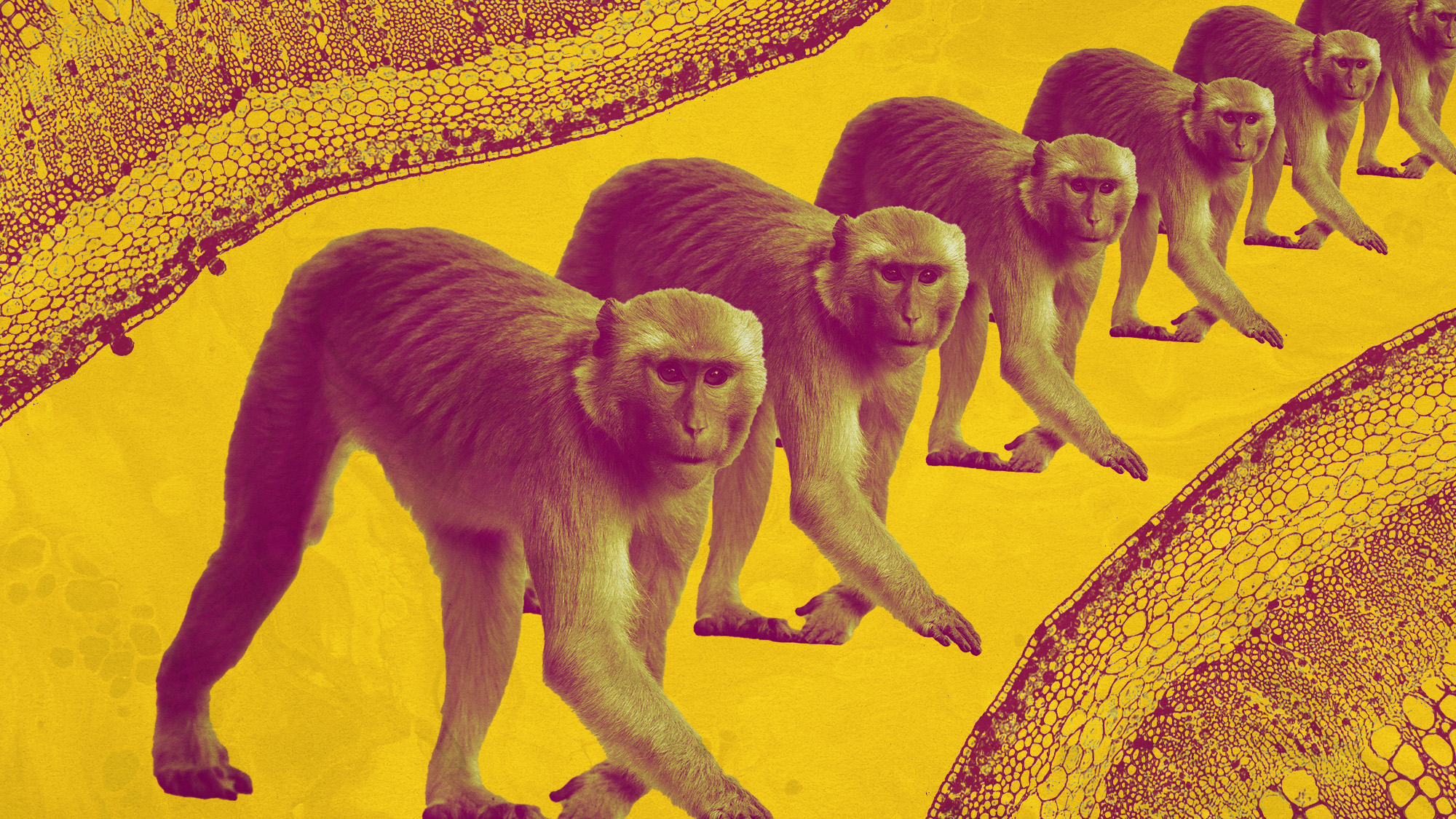Science behind cloning monkeys is helping advance medical research
The first rhesus monkey to be successfully cloned after many failed attempts has raised concerns among animal welfare groups

A free daily email with the biggest news stories of the day – and the best features from TheWeek.com
You are now subscribed
Your newsletter sign-up was successful
Researchers in China have successfully cloned the first rhesus monkey, a species widely used in medical research because of its physiological similarity to humans.
The monkey, named Retro, is now more than three years old and is "doing well and growing strong", according to Falong Lu, one of the authors of the study published in the journal Nature Communications.
It marks the first successful cloning of the rhesus monkey, and was achieved "using a slightly different approach from the conventional technique" used to clone Dolly the sheep in 1996, as well as other mammals such as long-tailed macaques, the first primates to be cloned, said Nature.
The Week
Escape your echo chamber. Get the facts behind the news, plus analysis from multiple perspectives.

Sign up for The Week's Free Newsletters
From our morning news briefing to a weekly Good News Newsletter, get the best of The Week delivered directly to your inbox.
From our morning news briefing to a weekly Good News Newsletter, get the best of The Week delivered directly to your inbox.
How did scientists create Retro?
The technique used to create Retro builds upon the pioneering work that led to the creation of Dolly the sheep nearly 30 years ago, known as somatic cell nuclear transfer (SCNT).
This method involves reconstructing "an unfertilised egg by fusing a somatic cell nucleus (not from a sperm or egg) with an egg in which the nucleus has been removed", explained CNN.
Since Dolly, scientists have cloned various mammalian species, such as pigs, cows, horses and dogs. But the process has a low success rate, with only a small percentage of embryos transferred into surrogates resulting in viable offspring.
Expanding on previous successful work with macaque monkeys, the research team developed a modified version of the SCNT technique to clone the rhesus monkey.
A free daily email with the biggest news stories of the day – and the best features from TheWeek.com
After hundreds of failed cloning attempts the scientists realised that, in the early cloned embryos, the outer membrane that forms the placenta did not develop properly.
To address this, they used a technique called inner cell mass transplantation, involving placing cloned inner cells into a non-cloned embryo. This technique allowed the cloned embryos to develop normally.
The team rigorously tested the refined technique, utilising 113 reconstructed embryos, of which 11 were transferred to seven surrogates, ultimately resulting in just a single live birth: Retro.
What are the implications of the new research?
One of the big potential implications is that it could speed up drug testing in the future. That's because genetically identical animals – of the kind produced by cloning – give like-for-like results, providing greater certainty in drug trials.
Animal welfare charity the RSPCA has deep concerns about the research, arguing that there is "no immediate application" for the study. "We are expected to assume that human patients will benefit from these experiments, but any real-life applications would be years away and it is likely that more animal 'models' will be necessary in developing these technologies," the group told the BBC.
Professor Robin Lovell-Badge, of the Francis Crick Institute in London, is an advocate of animal research where the benefits to patients outweigh the suffering of animals. He told the BBC he had similar concerns. "Having animals of the same genetic make-up will reduce a source of variation in experiments. But you have to ask if it is really worth it," he said. ''The number of attempts they had is enormous. They have had to use many embryos and implant them into many surrogate mothers to get one live born animal.''
He added that it was difficult to draw conclusions about the success of the technique when it had resulted in only one live birth. "You need at least two, but preferably more," he said.
Does it mean we're closer to cloning humans?
Cloning human beings in the near future remains highly unlikely. Most scientists find the idea of human cloning highly controversial and unethical. The team that created Retro explicitly stated that human cloning is "completely unacceptable", and refused to speculate on any future uses for their research in this area.
Speaking to CNN, Dr Lluís Montoliu, a research scientist at the National Centre for Biotechnology in Spain, who wasn't involved in the research, said that the result demonstrated two things. "First, it is possible to clone primates. And second, no less important, it is extremely difficult to succeed with these experiments, with such low efficiencies," he said.
He added that the low success rate of the process showed that "not only was human cloning unnecessary and debatable, but if attempted, it would be extraordinarily difficult and ethically unjustifiable."
Sorcha Bradley is a writer at The Week and a regular on “The Week Unwrapped” podcast. She worked at The Week magazine for a year and a half before taking up her current role with the digital team, where she mostly covers UK current affairs and politics. Before joining The Week, Sorcha worked at slow-news start-up Tortoise Media. She has also written for Sky News, The Sunday Times, the London Evening Standard and Grazia magazine, among other publications. She has a master’s in newspaper journalism from City, University of London, where she specialised in political journalism.